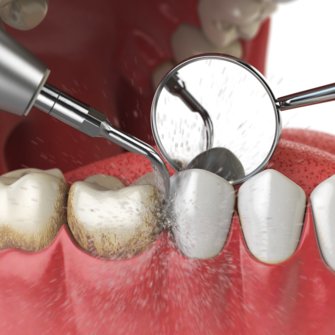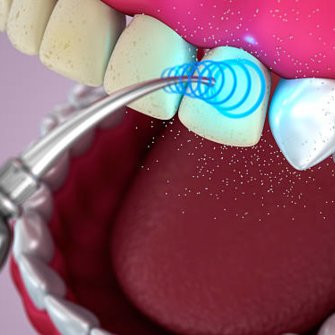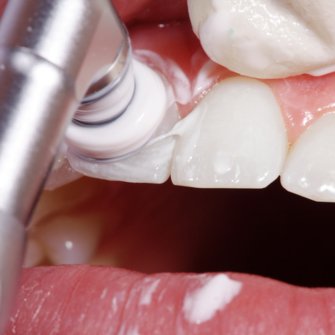
Teeth Cleaning Overview
Professional teeth cleaning is both a cosmetic and medical procedure. By using advanced polishing equipment, cosmetic dentists can bring about remarkable results, transforming the way your teeth look and feel. However, the procedure is also an effective health intervention, helping to halt the development of conditions like periodontitis.
Who is this for
- Anyone who have stains or plaque and those who have sustained tooth discolouration, either due to ageing or through behaviours like smoking.
- Patients who are at risk of gum diseases like periodontitis and recession.
- Those who suffer from bad breath.
Treatment abroad
- Minimum stay: 1 Day
- Number of trips: 1
Treatment process
- Treatment durations depend on the scale of the procedure. If the whole mouth is being cleaned, procedures may take 1-2 hours.
- Patients can return home and resume their daily lives immediately.
- Sensitivity may occur for 3-4 days.
Teeth Cleaning Cost
Treatment
Cleaning
Anesthesia
Price
Teeth Cleaning
Only Teeth
Not Required
€50
Deep Cleaning
Teeth and Gum
Required
€165
Teeth Cleaning Cost
Treatment
Price
Teeth Cleaning
€50
Deep Cleaning
€165
Teeth Cleaning Process
Professional teeth cleaning is both a cosmetic and medical procedure. By using advanced polishing equipment, cosmetic dentists can bring about remarkable results, transforming the way your teeth look and feel. However, the procedure is also an effective health intervention, helping to halt the development of conditions like periodontitis.
What is teeth cleaning?
Teeth cleaning is a common dental procedure which has two major aims. Firstly, it can set out to improve the cosmetic appearance of a patient's teeth. Secondly, it can help to prevent the development of serious dental conditions such as gum recession and caries. The procedure tends to be non-invasive and can be carried out very quickly. However, invasiveness and treatment durations vary. There are a number of methods in use, which can be classified as "deep" or "standard." Your dentist should be able to recommend exactly the right procedure to improve your dental health.
What is deep cleaning?
Deep cleaning is also known in the dental world as scaling and root planing. Scaling involves removing plaque and tartar from the surface of the teeth and from the pocket area between the teeth and gums, according to the NIDCR. The dental hygienist can perform scaling and root planing using either electrice or ultrasonic instruments or manual scaling tools.
The other part of deep cleaning is root planing. The dental hygienist will use a scaling instrument to remove plaque and tartar from the surface of the roots of your teeth. A scaling and root planing procedure will require a minimum of two visits as an appointment. A follow-up visit may be necessary to confirm that your gums and teeth are getting healthier and there is no pocket depth.
How does teeth cleaning work?
Many people will be familiar with basic dental cleaning techniques. When superficial cleaning is required, dentists can rely on polishers, air jets and mechanical scrapers to remove plaque and other forms of debris. In these procedures, dentists may use specialist electric toothbrushes to apply abrasive toothpastes. They may also carry out a thorough flossing of all tooth junctions, and fluoride-based gels may be applied; these tend to be left to set underneath mouth guards for a few minutes and help to ward off cavities following the procedure. However, more long-lasting results can be achieved via a "deep" cleaning procedure. Here is how it usually works
- Consultation: The first step is to attend a dental consultation, where your dentist will assess the extent of staining and plaque build-up and check for any tooth and gum damage. If they are satisfied that extra cleaning is required below the gum line, they will recommend that you undergo "root planing" - a form of cleaning which reaches below the visible gum line.
- Admission and preparation: Before your operation, it will be advisable to eat a healthy diet that includes few foods that can leave "debris" around the gum line. Patients may also be asked to floss more thoroughly than usual. If an anaesthetic is required, it may be necessary to abstain from alcohol for a few days prior to admission.
- Scaling and brushing: Before carrying out root planing, your dentist will follow many of the steps outlined above for a basic teeth cleaning procedure. This will remove plaque and dirt from the back of teeth and anywhere else your regular brushing and flossing has missed.
- Root planing: A local anaesthetic may be applied to affected areas, and the gum tissue will be carefully eased away from the tooth. Your dental surgeon will then use a hook-shaped scraper to penetrate under the gums, cleaning deposits from the roots of your teeth. After that, they will polish the affected areas, removing uneven surfaces that are typical in periodontitis patients.
- Disinfection: In some cases, it may be necessary to apply disinfectant remedies to kill off harmful bacteria. Dentists may "irrigate" the gum areas with antibacterial solutions like chlorhexidine gluconate. Antibiotics may also be prescribed as a follow-up measure.
What should I expect from teeth cleaning?
Professional teeth cleaning procedures are relatively simple, pain-free, and very effective, whether they are carried out for purely cosmetic or medical reasons. Individuals can expect a high level of satisfaction with the aesthetic results and a high probability of improved gum or tooth health in the future.
However, in all cases the result are not permanent. Whitening and the reduction of plaque deposits won't last forever, and follow-up cleaning may be required in a year or two. Moreover, if tooth discolouration is due to poor dental hygiene, patients will need to follow dental recommendations about improving their daily routine. Following teeth cleaning, anticipate a brief period where extra care is required when brushing, flossing, and eating. Teeth and gums may be very sensitive for up to a week, so hard foods are best avoided.
TEETH CLEANING GALLERY
Teeth cleaning process images
Teeth Cleaning FAQ
How often should I get my teeth cleaned?
It's recommended that you get a professional tooth cleaning two times a year, minimum.
What are the benefits of a teeth cleaning?
Dental cleanings keep your teeth and gums clean and healthy, and help you avoid paying for expensive dental procedures in the future. For example, when gum disease is left untreated, you may require deep cleaning (scaling and root planing), gum grafting, bone grafting, or a tooth replacement.
Potential risks and side effects
Serious side effects are rare. However, patients may experience soreness around their gums and bleeding in some cases. Heightened sensitivity to cold or hot temperatures is also possible.
Plan your treatment and get a quote online.
30 minutes free online video and phone consultation. Schedule your virtual visit.









